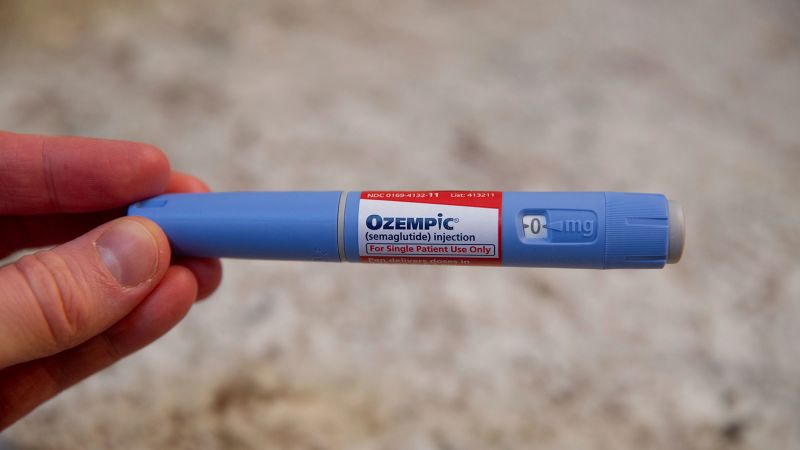Recent studies have begun to shed light on the effects of Ozempic, a medication primarily intended for the treatment of diabetes and obesity, on alcohol consumption. Ozempic operates as a GLP-1 receptor agonist, helping individuals manage their appetite and glucose levels. Interestingly, many users have reported that while the medication suppresses their appetite, it seems to have the added benefit of reducing their desire to consume alcohol, particularly amongst those with a propensity for moderate alcohol-use disorder.
The first clinical trial validating these anecdotal claims was recently conducted, focusing on a cohort of 48 individuals experiencing moderate alcohol-use disorder. The volunteers underwent a nine-week study in which they were administered low doses of semaglutide, the active ingredient in Ozempic, in comparison to those receiving a placebo. Published in the journal JAMA Psychiatry, the results were promising; participants on semaglutide exhibited a noteworthy decline in both their alcohol intake and cravings, showcasing the potential therapeutic role of the drug beyond its original indications.
This groundbreaking finding echoes earlier observations from various studies where both real-world applications of GLP-1 medications and animal experiments hinted at their efficacy in moderating alcohol consumption. Dr. Christian Hendershot, the leading researcher from the University of Southern California Institute for Addiction Science, expressed optimism regarding the findings. He noted that the magnitude of the effects demonstrated in this trial was more significant than he had anticipated when compared to existing treatments for alcohol-use disorder (AUD).
Alcohol-use disorder is reported to affect nearly 30 million individuals across the United States, as highlighted in the 2023 National Survey on Drug Use and Health. It’s characterized by the inability to stop or regulate alcohol intake despite various negative consequences. In light of growing awareness about the adverse health implications of alcohol consumption—supported by recent advisories from health professionals such as former US Surgeon General Dr. Vivek Murthy—it’s increasingly crucial to explore new treatment avenues for AUD.
Experts suggest that the potential of Ozempic and other similar GLP-1 drugs in treating AUD hinges upon broader trials encompassing a larger, more afflicted population. Current research indicates that a mere 2% of individuals with AUD leverage the limited FDA-approved medications available. This gap highlights a significant opportunity for advancing treatment methodologies.
Semaglutide, marketed by Novo Nordisk under the names Ozempic and Wegovy, acts by mimicking the hormone GLP-1, effectively curbing appetite, reducing gastric emptying, and promoting insulin regulation. Another relevant GLP-1 drug, tirzepatide, produced by Eli Lilly and sold as Mounjaro for diabetes, has shown promise in similar applications.
A notable aspect of the study included its unique approach to evaluating drinking behavior. Participants spent time in a simulated living room equipped with a bar stocked with their preferred alcoholic beverages and were free to consume alcohol within set safety limits while being monitored for consumption and providing feedback on their cravings. At the conclusion of the trial, those participants taking semaglutide reported drinking approximately 40% less alcohol compared to their placebo counterparts.
While the immediate benefits of semaglutide appear significant, some experts urge caution, stressing the need for additional investigations into the drug’s side effects and the mechanisms behind its efficacy in reducing alcohol consumption. The observed nausea and gastrointestinal issues linked to GLP-1 medications might impact drinking behaviors, yet researchers believe these effects do not solely account for the study’s primary findings.
Furthermore, while the trial observed reductions in the amount of alcohol consumed per session, it did not indicate any changes in drinking frequency. This could prove beneficial for individuals seeking to manage their alcohol consumption without complete abstention. Experts like Dr. Raymond Anton emphasize that a reduction-focused approach in clinical trials reflects modern treatment paradigms, aligning with many patients’ goals to drink less rather than quit entirely.
There is a growing pool of research examining the role of GLP-1 receptor agonists in helping individuals reduce alcohol intake, including connections to smoking cessation. With future trials underway, the pharmaceutical industry may need to pivot to fully utilize these findings in treating AUD, especially since leading companies like Novo Nordisk and Eli Lilly have thus far focused primarily on other dimensions of GLP-1 therapy.
As evidence mounts regarding the dual benefits of semaglutide—in terms of both weight management and alcohol consumption—a range of interventions could emerge to dramatically alter the landscape of addiction treatment. As research continues, patients and clinicians alike await the potential of a transformative approach in managing alcohol-use disorder through existing diabetes medications.












